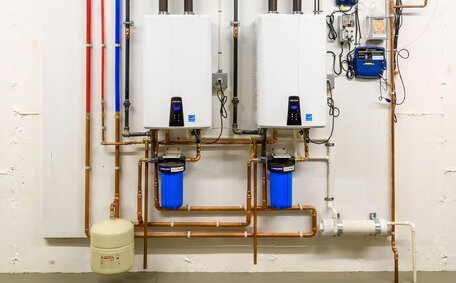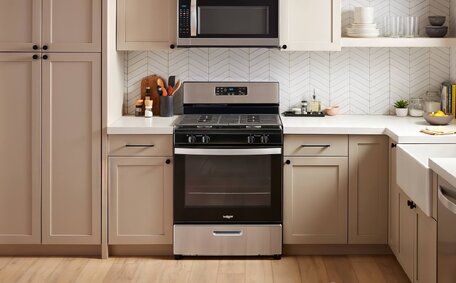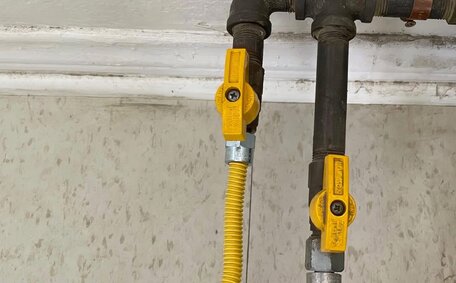
How Hard Water Hurts Hot Water Heaters
Hard water leaves mineral deposits in heaters, pipes and tanks. This limescale reduces efficiency, lifespan and hot water availability. Contact us for affordable water softening solutions.
Read MorePipe relining is a cost-effective and time-saving process used to repair damaged or broken pipes without the need for full pipe replacement. It involves creating a new pipe by coating the inside of the existing pipe with an epoxy resin. Once cured, this resin forms a smooth, seamless and long-lasting lining.
The pipe relining process is minimally invasive and causes little disruption to your property compared to digging up and replacing pipes. It also restores water flow and pressure by smoothing out cracks, blockages and corrosion damage. Overall, pipe relining offers a durable solution that can extend the life of your pipes by decades.
During the pipe relining process, our team will thoroughly clean out your pipes before applying the resin coating. We use industry leading techniques and materials to ensure a long-lasting repair that stands the test of time. Pipe relining can be used on many pipe types if the existing pipes are not severely damaged or collapsed.
Pipe relining can be used to repair a variety of common pipe materials, provided the pipes are in reasonable condition and not severely corroded or collapsed.
Some of the most common materials that can be successfully relined include:
In general, the smoother and more uniform the original pipe surface, the better the long term results from relining. Pipe relining contractors can assess the condition of your pipes with CCTV drainage inspections and recommend if relining is viable.
The pipe relining process involves coating the inside of your existing pipes with a thin epoxy resin which then cures and hardens. This forms a smooth, seamless new pipe wall inside the old pipe.
Our team will use CCTV inspections to assess the condition of your pipes and determine if they are suitable for relining. We then thoroughly clean out the pipes to prepare the surface.
We saturate the interior of the pipes with a liquid epoxy resin. This resin soaks into any cracks and defects to create a uniform coating. Once the coating has cured, it forms a durable, leak-proof barrier.
By essentially creating a new pipe inside the old one, pipe relining can restore flow capacity and water pressure without the need for major demolition or property damage. The thin resin layer bonds firmly to the old pipe walls providing added structural integrity.
The whole relining process usually takes just one to two days with minimal impact on your home or business. When cured, the epoxy resin lining is resistant to corrosion and can extend the life of your pipes for decades.
When determining whether to reline or fully replace your pipes, there are pros and cons to weigh for each option:
Relined pipes can provide decades of additional service life if properly installed and maintained. With high quality epoxy resins and proper surface preparation, most experts agree that relined pipes can easily last 50 years or longer under normal conditions.
Some of the factors that affect longevity include:
With periodic inspections and proper care, quality relined pipes can continue providing reliable service for most homeowners for the rest of their occupancy. This durable solution prevents the expense and mess of full pipe replacements.
p>There are several key factors that can influence how long a relined pipe will last before needing repair or replacement:
Pipe SizeSmaller pipes like those under 3 inches in diameter pose challenges for effective cleaning and resin application during relining. Larger diameter pipes provide more surface area for the resin to adhere.
Installation QualityProper pipe cleaning, resin selection, curing times and application techniques are vital for durable relining. Hiring experienced professionals ensures quality installation.
p>p>p>
In some cases, full pipe replacement may be the better option over relining. Here are some of the key factors that indicate replacement should be considered:
If pipes are extensively corroded, collapsed, have significant leaks or large sections of damage, relining may not be feasible or the best long-term solution. Replacement may be required.
Certain pipe materials like clay, concrete and galvanised steel are prone to cracking and have porous surfaces that don’t properly bond with epoxy resins. Replacement is often better.
Pipes that were originally installed improperly at too shallow a depth or with inadequate slope may continue having drainage issues if simply relined. Replacement allows for correcting issues.
If there is a need to significantly increase pipe capacity due to usage changes, replacement may be the only option as relining can only match the original pipe size.
An experienced plumber like Picnic Point Plumbing can assess your pipes and recommend if replacement or relining is the most appropriate fix for your situation after considering all the factors involved.
Pipe relining can offer a cost-effective and minimally invasive alternative to full pipe replacement in many situations. When existing pipes are in reasonable condition and not severely damaged, the epoxy resin used in the relining process can extend their lifespan for decades.
With proper cleaning, coating application and curing, quality relined pipes have been shown to last upwards of 50 years. Ongoing maintenance like CCTV inspections, drain cleaning and leak repairs can help maintain and maximise durability.
However, for severely deteriorated, collapsed or improperly installed pipes, replacement may still be the better long-term option. An experienced plumber can assess your individual situation and pipes to provide professional recommendations.
For any plumbing project big or small, Picnic Point Plumbing offers reliable expertise and quality workmanship. Contact us today to learn more about your pipe relining or replacement options. Our team is always happy to answer your questions and provide straightforward guidance.
Hard water leaves mineral deposits in heaters, pipes and tanks. This limescale reduces efficiency, lifespan and hot water availability. Contact us for affordable water softening solutions.
Read MoreIt’s important to routinely check your gas appliances for any issues. Signs of problems include gas leaks, strange sounds, odd smells and more. Have a professional inspect your gas appliances annually and service them regularly for safety.
Read MoreUpgrading your gas meter is a simple process completed by registered technicians. It involves disconnecting your gas supply for 15 minutes to swap the old meter for a new digital smart meter. The upgrade is free and improves accuracy.
Read MorePicnic Point, 2213 NSW
We will call back as soon as possible.




